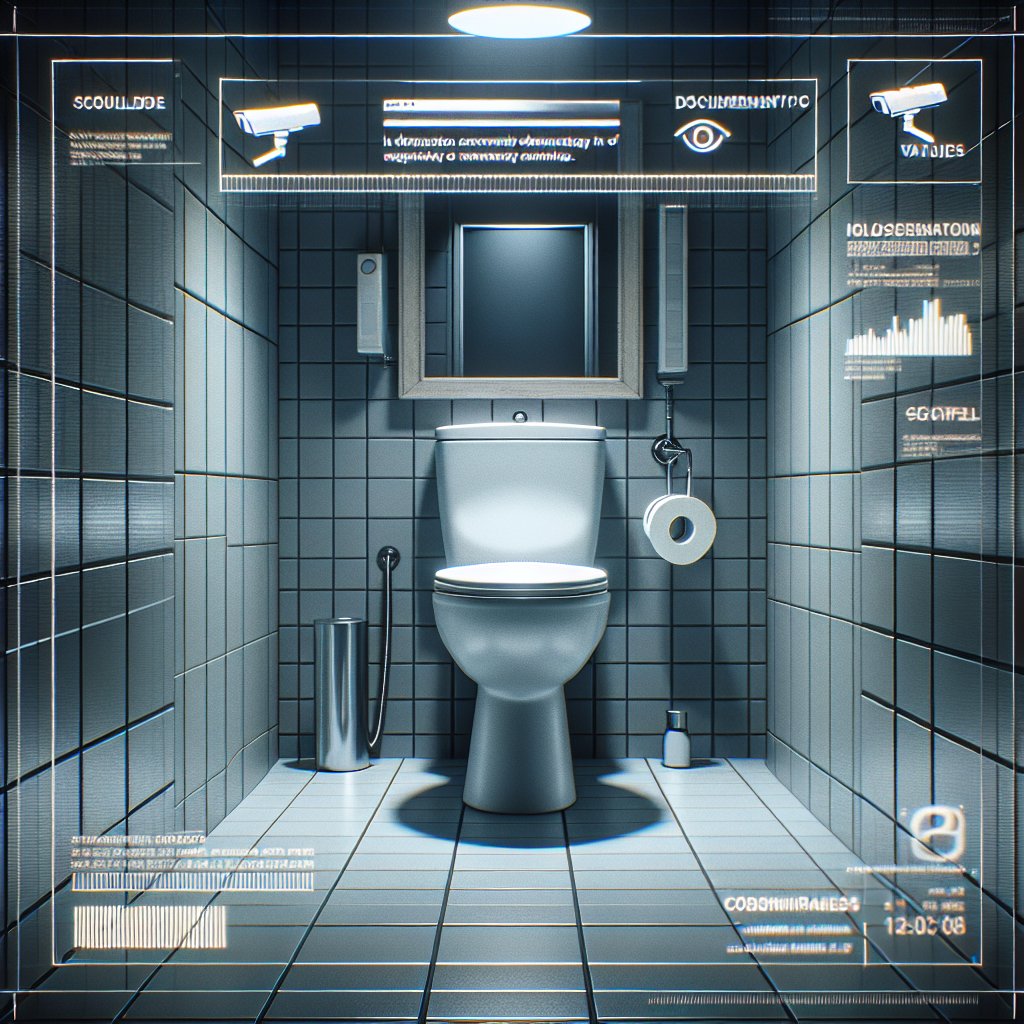The Dekoda: Your Toilet’s New Spy
Kohler, traditionally known for home fixtures, has stepped into the murky waters of surveillance capitalism with their latest product, the Dekoda. Priced at $599, this device is a camera designed to be mounted on your toilet bowl, capturing images of your waste to analyze your health. The promise is to monitor gut health and hydration levels, even detecting blood. However, the implications extend far beyond personal health monitoring. In a world where data is currency, the Dekoda represents a new frontier for corporations to mine our most private moments, all under the guise of wellness.
The Dekoda comes equipped with a rechargeable battery and a USB connection, ensuring it can operate seamlessly within the smart home ecosystem. A fingerprint sensor adds a layer of supposed security, identifying users to personalize health data. Yet, this feature also raises questions about data ownership and privacy. Who truly controls the data collected by such devices? The subscription model, ranging from $70 to $156 annually, further entrenches users into a system where their personal health data becomes a commodity.
Privacy in the Panopticon
Kohler claims the Dekoda’s sensors are designed to see only into the toilet, asserting a limited scope of surveillance. However, the notion of a camera in such an intimate space inherently challenges our concepts of privacy. The company assures users that data is secured with end-to-end encryption, yet the very act of capturing and transmitting such personal data opens up potential vulnerabilities. In an era where data breaches are commonplace, trusting a corporation with the images of your bodily functions seems a risky proposition.
The Dekoda is not the only device of its kind; startups like Throne are also venturing into toilet surveillance. This trend indicates a broader shift towards invasive health monitoring, where the line between wellness and surveillance blurs. The potential for misuse of such data, whether by corporations or state actors, is a chilling reminder of the panopticon we are building around ourselves. Every aspect of our lives, even the most private, is being commodified and scrutinized.
The Cost of Convenience
While the Dekoda promises health insights, the real cost is the erosion of privacy. The device’s subscription model not only generates revenue but also ensures a continuous stream of data for analysis and potential sale. This model of data feudalism, where corporations control and monetize our personal information, is becoming increasingly pervasive. The convenience of health monitoring comes at the price of our autonomy and privacy, a trade-off many are being coerced into accepting.
Moreover, the integration of such devices into smart homes raises questions about the broader surveillance infrastructure being constructed. Smart homes are becoming nodes in a larger network of data collection, where every device can be a sensor, feeding information back to corporate servers. The Dekoda is just one piece of this puzzle, but it highlights the relentless expansion of surveillance into every corner of our lives.
Resistance and Awareness
In the face of such pervasive surveillance, resistance and awareness are crucial. Users must demand transparency and control over their data, challenging the corporate narrative that privacy must be sacrificed for convenience. Tools like VPNs and encryption software can offer some protection, but the real battle is cultural and political. We must resist the normalization of surveillance and advocate for regulations that protect our digital rights.
The Dekoda, while marketed as a health tool, is a stark reminder of the dystopian reality we are drifting towards. It is a call to action for all of us to question the technologies we bring into our homes and the data we allow to be harvested. Our privacy is not a commodity to be sold; it is a fundamental right that must be fiercely defended.
Meta Facts
- •💡 The Dekoda toilet camera costs $599 and requires a subscription between $70 and $156 annually.
- •💡 Kohler claims the camera uses end-to-end encryption to secure user data.
- •💡 The device includes a fingerprint sensor for user identification, raising concerns about data ownership.
- •💡 Similar devices like the one from Throne indicate a trend towards invasive health monitoring.
- •💡 Using VPNs and encryption software can help protect personal data from being exploited.

